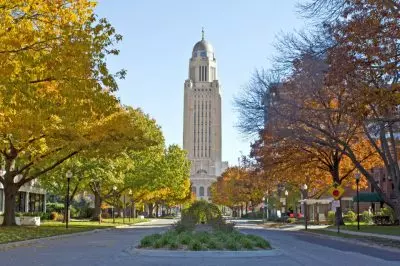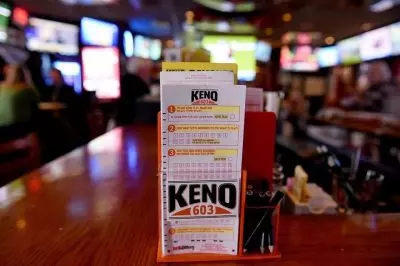 Keno lotteries in Nebraska, which started spreading across the state in the 1980s, generated more gross proceeds and had more sponsors than ever in the 2021/2022 fiscal year. However, some market analysts have shared their concerns about whether the 2020 voter initiatives that seek the legalization of casino gambling at local horse tracks will negatively affect the lotteries mentioned above as a generally reliable source of additional income for the local Governments.
Keno lotteries in Nebraska, which started spreading across the state in the 1980s, generated more gross proceeds and had more sponsors than ever in the 2021/2022 fiscal year. However, some market analysts have shared their concerns about whether the 2020 voter initiatives that seek the legalization of casino gambling at local horse tracks will negatively affect the lotteries mentioned above as a generally reliable source of additional income for the local Governments.
According to data provided by the Charitable Gaming Division of the Nebraska Department of Revenue (NDR), the 182 keno games in the state brought an overall gross income of $349.8 million in the fiscal year that ended on June 30th, 2022. The proceeds of keno have increased by 93% statewide since the 2004/2005 fiscal year.
The manager of the Charitable Gaming Division, Gail Ross, has shared that casinos could be “stealing” keno parlors’ customers. On the other hand, the organization’s boss shared that keno games, especially the ones far away from current or likely racinos might not suffer such a serious negative impact.
Lincoln, Omaha, and four suburbs of Omaha have been announced as the top six places of Nebraska’s Top 10 list and generate almost 50% of the overall keno income in the state. According to official data, keno games that were sponsored by a dozen and a half villages, cities or counties in Nebraska Panhandle area brought $10.1 million over the 2021/2022 fiscal year, with approximately $7.12 million of that amount being brought by games sponsored by one of the two oldest lotteries in Nebraska – the one in Scotts Bluff County.
The figures provided by the state do not account for any winner payouts, share-of-proceeds agreements, and state gambling taxes. Once all of them are deducted, the sponsoring governments across the state may be left with as little as 5% to 10% of the entire amount.
Keno Lotteries in Nebraska Experience Several Ups and Downs Throughout the Years
 According to official data, the number of licensed keno games in Nebraska has increased by 40% since 130 such games were operational in the 2004/2005 fiscal year. Since 2016/2017, 20 local governments have gotten into the act.
According to official data, the number of licensed keno games in Nebraska has increased by 40% since 130 such games were operational in the 2004/2005 fiscal year. Since 2016/2017, 20 local governments have gotten into the act.
In more contemporary times, the city of Bellevue was the first one in Nebraska to roll out a local lottery. It started operating video lottery terminals in 1983, with Scotts Bluff Country following at the beginning of the next year, 1984. A number of other cities and counties in Nebraska also joined before the local Legislature decided to outlaw video lottery terminals in its 1984 legislative session. A couple of years later, senators approved a few other types of local lotteries, and the two aforementioned locations became the first two license holders in the state.
Soon after that, both locations settled on keno as their most lucrative alternative. Lyman voters gave the green light to keno in 1990, followed by the ones in Minatare (1991), Terrytown (1992), and Gering (1994). According to official data, statewide gross income from keno services had increased by almost 7,146% to $208.7 million.
However, overall income fell to $153.8 million only three years later when so-called riverboat casinos were approved by Iowa lawmakers in Council Bluffs at the beginning of 1995. Eventually, land-based casinos took their place. The rising popularity of casino gambling even resulted in many residents of the Omaha area visiting the state of Iowa to purchase their gas and groceries on the way to the local casinos.
It took more than a decade, until fiscal 2007/2008, for the state’s keno income to improve its record registered 13 years earlier. And then, Nebraska’s Legislature decided to suspend indoor smoking in most public places, causing another three-year decline. Keno games in the state managed to pass their peak from the mid-1990s for good sometime in the 2012/2013 fiscal year. Keno games’ overall income suffered another decline after the beginning of the Covid-19 pandemic in 2020 but managed to rebound thanks to a 42% increase in the following two years.